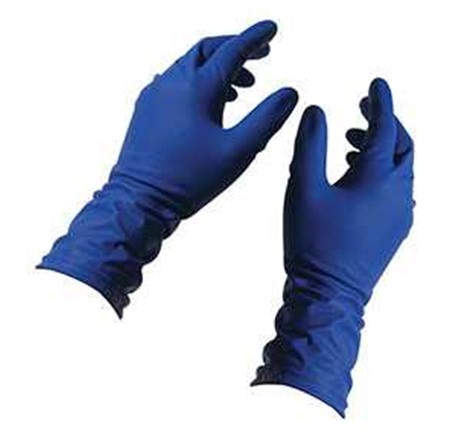Alive for help: how neural networks are being implemented in Russian medicine

Medical products based on artificial intelligence (AI) will appear in all regions of Russia by the end of the year, and now, by the middle of the year, medical products using AI have been contracted for 500 million rubles. This was announced in mid-July during the plenary session of the State Duma by Russian Minister of Health Mikhail Murashko .
Artificial Intelligence is a federal project that has been actively implemented since 2021 as part of the Digital Economy national project. It provides for a variety of support measures, covering the formation of the personnel potential of the industry, the development and implementation of domestic solutions, support for scientific research, etc.
For example, the country already has six research centers in the field of artificial intelligence, created on the basis of Skoltech, ITMO University, Moscow Institute of Physics and Technology, National Research University Higher School of Economics, Innopolis University and the Programming Institute of the Russian Academy of Sciences. Development companies receive grant support: more than 750 projects have been funded to date. Speaking at the Digital Industry of Industrial Russia conference, Deputy Prime Minister of the Russian government Dmitry Chernyshenko explained that out of about 800 Russian companies working in the field of AI, 90% are startups.
The total economic effect from the use of artificial intelligence by medical organizations amounted to 13 billion rubles. in 2021. Nevertheless, the key point of using AI in medicine is not to increase the income of specific organizations, but to provide quality medical care to patients and support medical decision-making. We tell how artificial intelligence is already being used in medicine and what challenges and tasks of domestic healthcare it meets.
What was the trigger for the introduction of AI in healthcareIf technological progress in medicine before that moved rather inertially, then the COVID-19 pandemic became a trigger for it to go faster. One of the consequences of the pandemic is that the healthcare sector has become a leader in the implementation of innovative technologies, primarily based on AI. So, according to data for 2021, in Russia already 16% of medical organizations used them, another 34% were going to implement neural networks in the near future, Chernyshenko said.
“More than 20 AI-enabled medical devices registered by Roszdravnadzor are already being used by hospitals,” says Russian Deputy Health Minister Pavel Pugachev. “Measures to support the federal project “Artificial Intelligence” will make it possible to implement specific projects.”
Read PionerProdukt .by Hacked a mobile app: how to stop an attack on business Not to refuse, but to postpone: how to save money without changing your lifestyle Alchemist or strategist: who are you as a leader and how this knowledge will help business How to communicate with people whose brain works anotherWhat can artificial intelligence do in healthcare?
perform diagnostics based on image analysis, select the correct dosages of drugs, monitor physiological parameters using mobile applications, distribute patient flows using AI-controlled hardware and software systems, and increase the accuracy of surgical interventions.AI-based technologies make it possible to detect a disease at an early stage, which means it is cheaper and easier to cure it, says Aleksey Sidoryuk, Director for Digital Transformation of Industries at ANO Digital Economy: “This reduces the burden on the healthcare system as a whole, simplifies the work of doctors and increases the productivity and quality of life for us ordinary citizens.”
As an example, let’s take a look at medical devices and platforms based on artificial intelligence technologies, which are already facilitating the work of doctors and helping patients.
What successful cases of AI application are working nowOne of the most popular AI-based technologies in healthcare has become computer vision . Its advantage is to help doctors make a diagnosis decision based on image recognition. Computer vision helps to determine the state of organs and tissues in various diseases, as well as quickly identify pathologies on CT scans of the lungs, which has become a significant help for doctors during the spread of COVID-19.
The Center for Diagnostics and Telemedicine of the Moscow Health Department named the leaders of the experiment on the use of innovative technologies in the field of computer vision following the results of the pandemic 2020. Thus, in the category of fluorography, the company "Medical Screening Systems" was noted with the service "Celsus", which increases the speed and accuracy of the interpretation of fluorograms and radiographs. The images are analyzed by Celsus within a few seconds, after which he determines the pathological changes in the chest organs in five clinical areas. The service is also capable of sorting depending on the danger of pathology and how soon you need to pay attention to it.
In addition, the Third Opinion Platform made a significant contribution to helping doctors in 2020. The company's services now analyze mammograms, fluorograms, chest CT scans, etc. The platform, among other things, works as a doctor's assistant in the detection of pathologies and allows you to receive an automatically pre-filled conclusion on the study. Thus, it saves the doctor time to generate a report and reduces the likelihood of error - the service will draw his attention to areas of the image with pathologies.
The development and creation of a new drug is a process that takes time, on average from ten to 15 years, explained Dmitry Vlasov, head of the CIS medical cluster. At the same time, one out of a thousand drugs reaches the phase of clinical trials in the form of a human trial. And the market will end up with one in 5,000, according to estimates from the California Biomedical Research Association.
Artificial intelligence can also help in this costly and time-consuming process by selecting molecular compounds. The Russian platform Syntelly based on artificial intelligence can analyze the toxicological and physico-chemical properties of compounds. The service database contains information about 96 million molecules and makes it possible to study and compare them, to obtain information about their properties. The development of scientists from Skoltech and NTU Sirius is ready and is now at the testing stage.
The World Health Organization (WHO) estimates that by 2030 there will be a shortage of 10 million health workers worldwide. The demand for highly qualified specialists continues to grow even now. These challenges set the goal of freeing doctors from routine tasks such as entering information into a medical record, filling it out and other paperwork . AI-based technologies, such as natural speech processing and intelligent decision support , allow the physician to shift the focus of the physician's attention to complex diagnostic questions of patients, increasing patient satisfaction.
So, using voice input in the first half of last year, Moscow radiologists filled out 80% more protocols than in the whole of 2021, said Yury Vasiliev, director of the Center for Diagnostics and Telemedicine of the DZM. The radiology departments of the capital's hospitals used the Voice2Med voice assistant based on AI technology developed by the MDG group of companies, while the speech recognition quality reached 98%. Now Voice2Med works in medical institutions in 65 regions of Russia.
Prospects for AI in healthcare in RussiaUntil 2024, it is planned to create a series of standards that would ensure the development of neural networks and remove regulatory and technical obstacles to their development. This will provide access to data to a wide range of developers and further deepen the integration of artificial intelligence into the medical infrastructure. Ten Russian standards have already been adopted, developed by Moscow radiologists, which came into force on January 1 this year. The key task of their implementation is to minimize the likelihood of harm to the patient due to the poor performance of the AI-based system.
Already, the development of platforms that allow you to solve all issues in one place is gaining popularity - from data markup to model creation. This will convert the experience of doctors into the creation of relevant data sets (data sets) for AI training. The ability for a physician to participate in the preparation of data and the design of services will reduce distrust in artificial intelligence.
“Now we can confidently say that Russia is one of the world leaders in the development and implementation of artificial intelligence in healthcare,” concluded Sidoryuk from Tsifrovaya ekonomika ANO.




























































